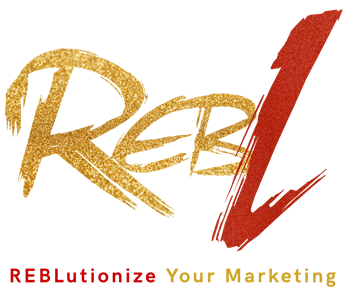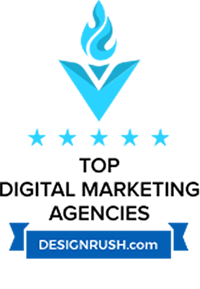Agencies balancing multiple client objectives often struggle with delivering consistent, engaging content. Content marketing plays a key role in transforming these challenges into growth opportunities. By using strategic initiatives, agencies can surmount hurdles in producing high-quality content across different formats, meeting niche demands, and persuading clients to try new formats. This provides insights on strategies, integration, and measuring success to deliver results.
What is Content Marketing?
Content marketing is all about creating and sharing content that your audience finds valuable and engaging. It aims to build brand awareness, increase website traffic, and turn prospects into customers.
These days, content marketing is a key part of any digital strategy. It helps brands connect with audiences by offering information they can use or enjoy. Think about how companies use blogs, social media, and videos to provide content that’s genuinely helpful, not just promotional.
Great content marketing relies on storytelling and making connections. You want your audience to feel a personal connection to your brand. When you consistently offer valuable content, you become a trusted resource and build lasting relationships.
Staying relevant means keeping up with what your audience prefers. It’s about mixing creativity with data to make sure your content stays engaging and meaningful.
The Impact of Strategic Content Marketing on Agency Success
Strategic content marketing is key to boosting an agency’s offerings. By having a clear content plan, agencies can show their expertise and establish leadership in their fields. This targeted approach enriches a portfolio and strengthens client relationships. When agencies provide engaging content solutions, clients see real results, building trust and loyalty.
In today’s competitive market, agencies need to stand out. Strategic content marketing helps them achieve this by delivering measurable outcomes:
- Increased website traffic
- Higher engagement
- Better conversion rates
These results are what clients seek and can influence their choice of an agency partner.
Types of Content Marketing Relevant to Agencies
Different types of content marketing offer unique advantages to agencies.
- Blogs are platforms where agencies can share their expertise, improve SEO, and drive organic traffic. They are effective in establishing thought leadership and engaging audiences more deeply.
- Videos are another powerful tool, capturing attention and conveying messages quickly. Video content usually leads to higher engagement because it’s easy to digest and share across platforms.
- Social media content helps agencies interact with audiences in real time and customize messages for specific platforms. It builds community and maintains ongoing dialogue with followers.
When combined thoughtfully into a strategy, these content types amplify an agency’s reach and enhance client engagement. By consistently delivering resonant content, agencies can stand out in a crowded marketplace.
Exploring Key Elements and Strategies in Content Marketing
A successful content marketing plan is vital for marketing agencies that want to increase their value and grow sustainably. By forming a solid strategy, agencies align activities with clients’ goals while addressing audience needs.
Creating Effective Content Marketing Strategies
- Setting Objectives: Start by defining what you want to achieve with your content marketing. Are you aiming to boost brand awareness, generate leads, or improve customer loyalty? Clear objectives guide your decisions and actions.
- Understanding Target Audiences: It’s crucial for agencies to know their target audience. This involves studying demographics, preferences, and behaviors. Insights gathered will help customize content to resonate with the audience and address their challenges or interests.
- Choosing the Right Content Forms: Decide on content formats that match your objectives and audience preferences. Whether it’s blogs, videos, infographics, or podcasts, selecting the right medium is important for maximizing engagement.
- Identifying Trends and Content Gaps: Agencies should watch for emerging trends and content opportunities. Conduct audits to spot gaps where new content can address unmet needs or trending topics.
- Drafting a Strategy Document: Compile this information into a strategy document. This should outline objectives, audience insights, content types, key topics, and a publishing schedule. A clear plan acts as a roadmap, ensuring consistency and unified efforts across teams.
Take a Closer Look:
- Set metrics to evaluate strategy effectiveness, like engagement rates, conversion rates, and audience growth.
- Encourage feedback from clients and audiences to adjust your strategy as needed.
Following these steps allows agencies to develop content marketing strategies that exceed client expectations and support agency success.
Aligning Content Marketing with Business Objectives and Client Needs
Aligning content marketing with business objectives involves understanding and translating client needs into actionable goals. Without this connection, efforts might become disjointed and less effective.
A strategic approach starts with understanding what clients aim to achieve. This could mean increasing brand awareness or capturing more leads.
Agencies need to reflect these objectives in content efforts that genuinely serve the clients’ vision. Empathy for these goals is essential in creating meaningful content strategies.
Integrating Content Marketing with Other Digital Strategies
Content marketing is most effective when it integrates with other strategies like SEO and social media. Well-crafted content enhances search visibility and drives organic traffic.
When content strategies mix with social media, they amplify reach and engagement. For example, a blog post optimized for SEO also shared on social media extends its visibility.
This dual approach creates a ripple effect of engagement across platforms. Analytics from social media interactions can guide content planning, ensuring material appeals directly to audience interests.
Unified content marketing with other tactics fosters cohesive and powerful campaigns. It’s about strategic alignment, not redundant overlaps, building a digital presence that’s more impactful.
Overcoming Common Challenges in Content Marketing
In content marketing, challenges come up frequently. Adapting to changing trends or managing within tight budgets are things agencies like REBL Marketing Inc know well. Here are some common obstacles and solutions to help manage them:
- Resource Limitations: With multiple clients and limited staff, resource allocation can be tough. Prioritize tasks based on impact and consider hiring freelancers for tasks like graphic design or content writing.
- Adapting to Shifting Trends: Trends in content marketing can change quickly. Keep your team informed with ongoing education and industry events to keep strategies relevant. Updating your approach regularly can help maintain a competitive edge.
- Measuring Content Marketing ROI: Quantifying return on investment is a frequent challenge. Use detailed analytics tools to track metrics like conversion rates, website traffic, and social media engagement. This analysis allows for data-driven decisions.
Measuring Success and ROI in Content Marketing Efforts
Understanding the effectiveness of your content marketing strategy is essential. Agencies should use analytics tools to determine the return on investment for content initiatives. Here are some practical solutions:
- Use Analytics Tools: Platforms like Google Analytics, HubSpot, or SEMrush track visitor behavior and measure how content influences conversions and the quality of traffic.
- Set Clear KPIs: Establish key performance indicators such as organic traffic growth, conversion rates, average time on page, and bounce rates. These metrics help evaluate success and guide future strategies.
- Regular Performance Reviews: Consistently assess progress against goals. Monthly or quarterly evaluations help agencies adapt and refine strategies for continued success and relevance.
By focusing on these methods, REBL Marketing Inc and other agencies can effectively address content marketing challenges. This ensures every effort contributes to broader business goals and delivers measurable ROI.
Conclusion and Key Takeaways
Effective content marketing can lead to significant agency success. We’ve explored how strategic content marketing helps agencies deliver engaging content that resonates with audiences and meets client objectives. It involves crafting a well-defined plan that showcases your agency’s expertise and improves client satisfaction through outcomes like increased website traffic and better conversion rates.
Remember the key strategies:
Understanding your target audience, setting clear objectives, and choosing the right content forms.
These elements, aligned with SEO and social media, can transform your content marketing efforts from simple execution to strategic achievement.
It’s time to act. Agencies should adopt these strategies to overcome challenges and improve their content marketing skills. By staying aware of industry trends and measuring your efforts’ impact, your agency can build stronger client relationships and stand out in the competitive marketplace.
Content marketing is more than just creating content. It’s a way to build meaningful connections with clients and audiences, enhancing relationships and driving success.




